Book of the Day Roundup: February 15-19, 2021
How to Order the Universe
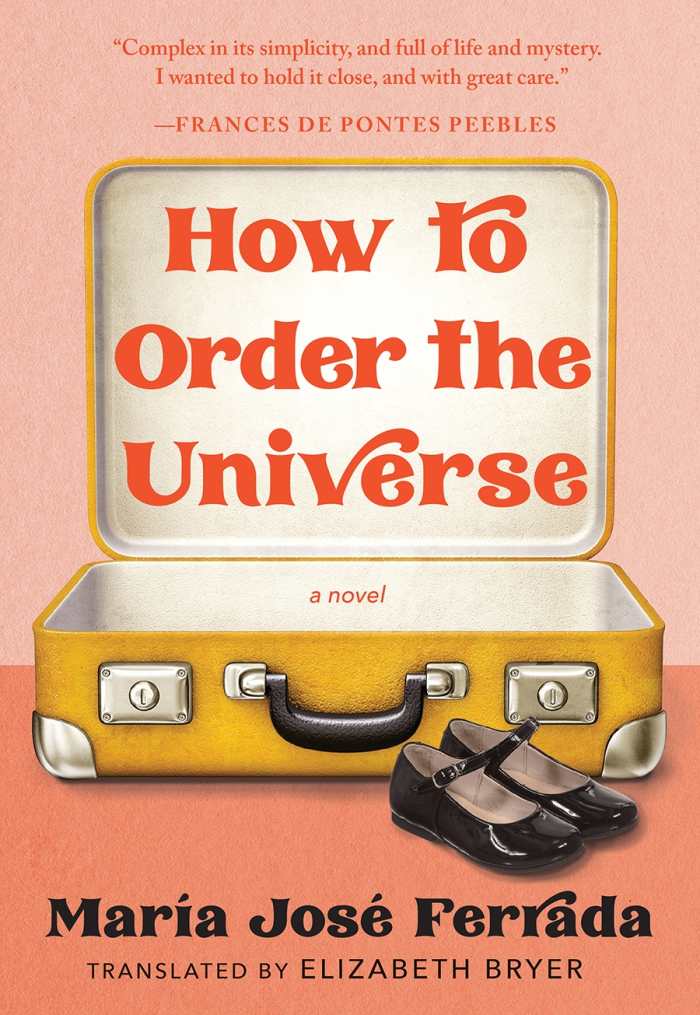
María José Ferrada
Elizabeth Bryer, translator
Tin House
Softcover $15.95 (180pp)
978-1-951142-30-8
Buy: Local Bookstore (Bookshop), Amazon
In this intimate, intense novel about a child’s perception of a vanishing way of life, seven-year-old M, thirsty for a way of learning about the world that her classroom cannot offer, convinces her traveling salesman father to take her along as he travels Pinochet-era rural Chile in his old Renault.
M is curious, clever, and a consummate actress who, with her father’s help, manages to hide her school absences from her otherwise absorbed mother. She spends time practicing “gazes” and psychological tricks to beguile shop owners into buying the hardware supplies her father sells. Her scheme works, and M becomes a welcome part of the fellowship of traveling salesmen, learning the ropes of their life on the road, imbibing their stories, legends, and commercial jargon, and, from her father, learning how to blow smoke rings—all part of her “alternative education.”
But it is not to last. Their encounter with E, an enigmatic photographer, places both M and her father in danger. An urgent trip under the cover of night explodes into gunshots. The next morning, M is found under a tree, alone and unconscious. Traumatized, she confesses all to her mother, who assures her that her father is “wily enough” to escape his interrogators. A new life and a new father claim her, but she is haunted by the ghosts and secrets revealed by that dark night, and is gripped by a visceral realization of the fragility of life.
Luminous and tender, How to Order the Universe is a novel about the love, filled with words unsaid, between a father and daughter who are caught up in the tides of change that engulf their ordinary, ordered way of life.
KRISTINE MORRIS (December 27, 2020)
Spoils of the Dead
A Liam Campbell Novel
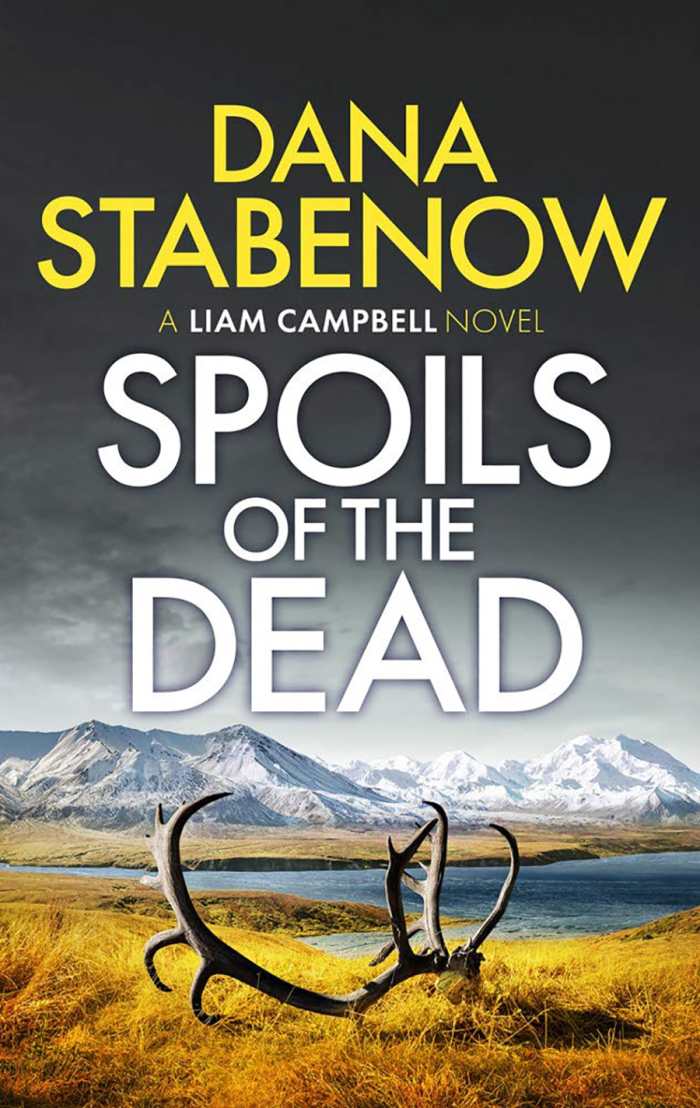
Dana Stabenow
Head of Zeus
Hardcover $29.95 (304pp)
978-1-78854-915-8
Buy: Amazon
Dana Stabenow’s fifth book in the Liam Campbell series, Spoils of the Dead, involves secrets from the past—and an inexplicable murder in the present.
Liam hasn’t even formally started his new job as an Alaska state trooper when trouble starts. An archaeologist, Erik, has made a discovery, and its connection to native Alaskan tribes could shut down drilling work—the source of income for many local residents. Just days later, the skeleton of a boy is discovered on Erik’s dig site; then Erik’s body is found mere feet from where the skeleton was found. With the help of his new assistant, the new friends he’s already made in town, and his beloved wife, Liam investigates, but the case could turn his small Alaskan town upside down.
Spoils of the Dead is filled with colorful characters whose contributions make each step of the investigation rich and detailed. An elderly former nightclub owner often turns up nude on the road into town, while an action movie star throws film-viewing parties for the locals. There are also plenty of grumpy old men who don’t want things to change in their town.
Fascinating glimpses into Alaska’s history and geography come in; Liam’s wife, Wy, is a pilot, and she delivers detailed observations of the area’s topography. Erik’s interest in the history of Alaska’s native tribes results in intriguing clues about the town’s past. Each element enhances the book’s action, and Liam slowly eliminates suspects and hones in on the one person who is tied to both victims. The revelation of the murderer’s identity is perfectly timed, leading to a solid, satisfying conclusion.
The past meets the present on the wild Alaskan tundra in the expressive mystery novel Spoils of the Dead.
ANGELA MCQUAY (December 27, 2020)
The Orchard House
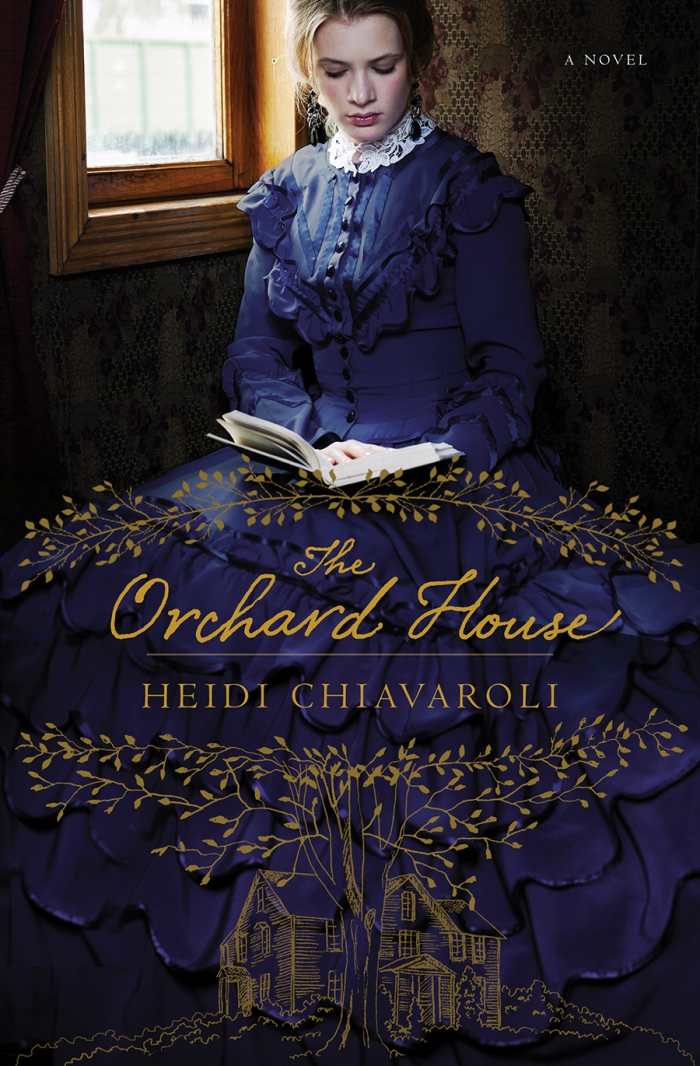
Heidi Chiavaroli
Tyndale House Publishers
Softcover $15.99 (432pp)
978-1-4964-3473-9
Buy: Amazon
Heidi Chiavaroli’s novel The Orchard House is a tribute to Louisa May Alcott, whose historic home and writing speak to women’s need for refuge.
When she was a teenager, Taylor was adopted by the Bennett family, whose kindness she never felt worthy of. She and her new sister, Victoria, shared a love for Little Women and exchanged views on their own creative writing, even attending workshops at Orchard House. Later, they grew apart.
Now thirty-seven and a bestselling author, Taylor returns to Concord to see her adoptive mother, who has cancer. She feels guilt about her abrupt departure and her strained relationship with Victoria, who’s facing domestic abuse; they excavate old wounds, but also set them aside to extend support. A twin narrative set in the 1860s focuses on Johanna, an aspiring poet, the caretaker of Orchard House, and an abused wife.
The alternating timelines converge because of the women’s desire to feel unfettered despite also yearning for connections. Rediscovering Johanna’s poems, and researching her life, pulls Taylor and Victoria closer. Epistolary interludes between Johanna and Louisa May Alcott mirror the sisters’ affection. Gradually, scenes ravel toward freedom, which the women find in being vulnerable.
With Christian themes about trusting God through personal failings, this exploration of broken relationships is raw when it comes to addressing its characters’ self-imposed isolation, and hopeful when it comes to showing the powerful influence of sisterhood on healing. The characters’ clear admiration of Louisa May Alcott is both about sweet girlhood fandom and respect for her mind; in scenes featuring Louisa, she is a down to earth advisor. Concord and its surroundings are a fertile background for the story.
The Orchard House is a historical novel made for Louisa May Alcott fans, with plentiful references amid a touching story about homecoming and forgiveness.
KAREN RIGBY (December 27, 2020)
Teddy
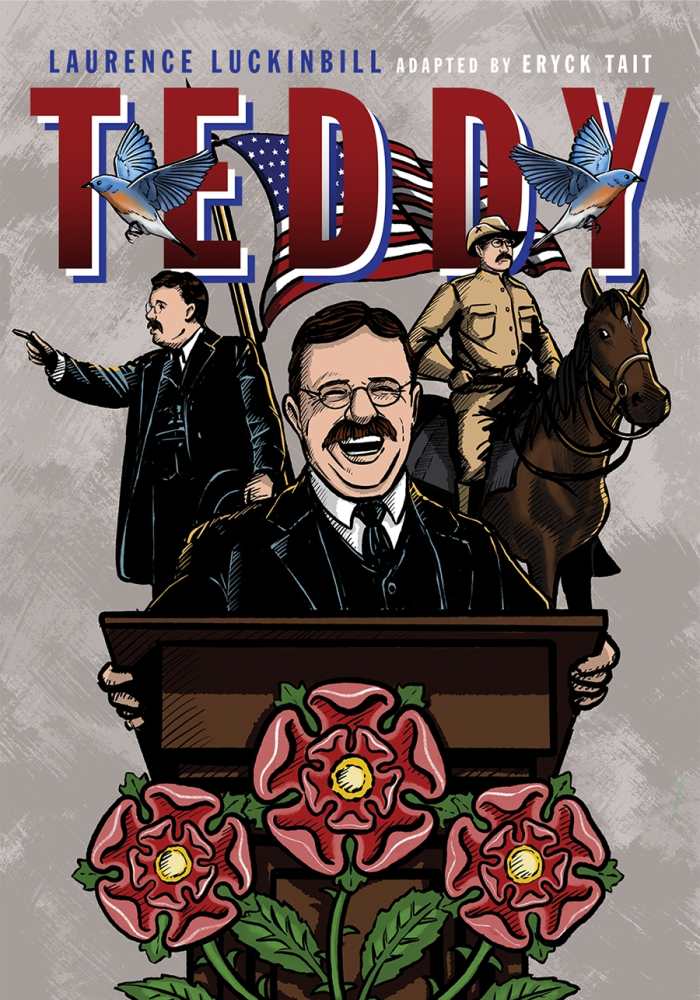
Laurence Luckinbill
Eryck Tait, illustrator
Dead Reckoning
Softcover (176pp)
978-1-68247-487-7
Buy: Local Bookstore (Bookshop), Amazon
Wide-ranging but intimate, the graphic biography Teddy profiles Theodore Roosevelt and his accomplishments.
Adapted from Laurence Luckinbill’s one-man play, the book anchors Roosevelt in his final months, after his twenty-one-year-old son was killed in World War I. While giving a speech, Roosevelt looks back on his life, speaking to his audience in a direct style. His fervor for military actions stands in stark contrast to his inner doubts; these conflicting aspects of his personality are gripping and affecting.
The book captures Roosevelt’s colorful personality and quirks, like his tendency toward distinct language: he uses words like “flubdub,” “mugwump,” and “bully.” Also depicted is his love for the outdoors, and his constant striving for improvement, as he was determined to live up to his father’s ideals. Fascinating insights into Roosevelt’s larger motivations arise, such as that “If I had never gone west, I would never have become president.” Interesting anecdotes about the Battle of San Juan Hill and the origin of the teddy bear are also included.
Remarkable likenesses of Roosevelt at different stages of his life come through the book’s art, as do images of his family members and other famous figures. The book’s backgrounds are rendered in sweeping, convincing detail, from the interiors of a government building to those of the Roosevelt residence, and extending to the wide expanses of the American West.
Covering both Roosevelt’s formative years and his achievements in the White House, and summarizing the politics of his time, Teddy is an excellent graphic biography that serves as a compelling reminder of why Theodore Roosevelt is considered one of the greatest US presidents.
PETER DABBENE (December 27, 2020)
Gerta
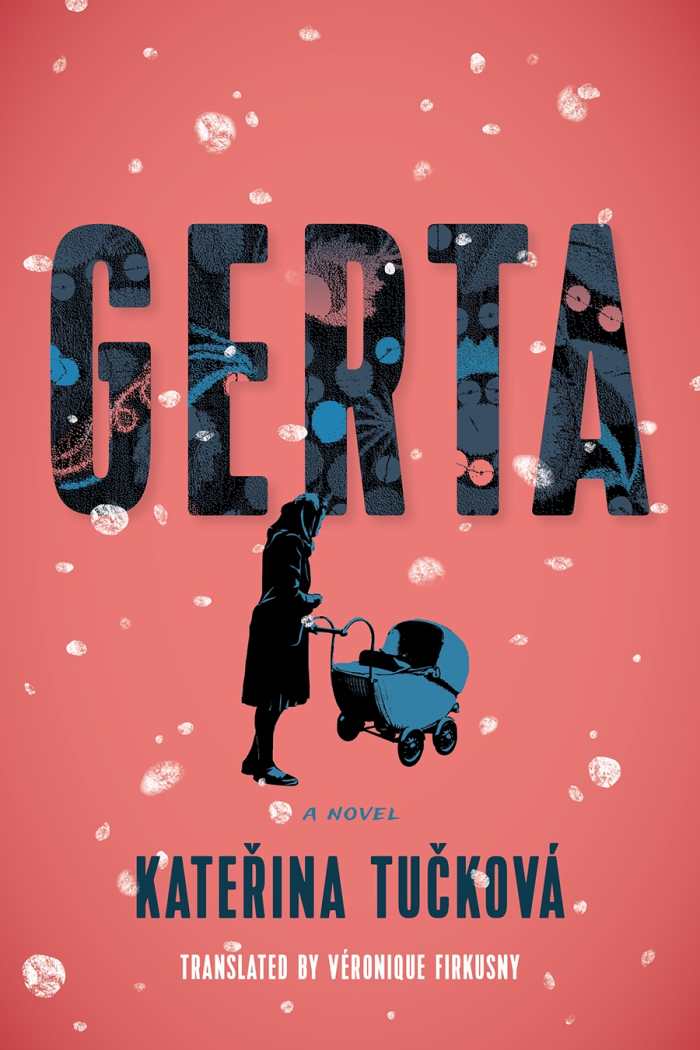
Kateřina Tučková
Véronique Firkusny, translator
Amazon Crossing
Hardcover $24.95 (460pp)
978-1-5420-4315-1
Buy: Amazon
Kateřina Tučková’s Gerta is a startling, significant historical novel set during and after the violent postwar expulsion of Germans from Czechoslovakia.
At the end of WWII, Gerta—the daughter of a disrespected Czech mother whom she loves, and a German Nazi father whom she despises—is shocked by the fervor with which ordinary Czech citizens decide to go after anyone with German blood. Her approach to politics has always been “live and let live”; nonetheless, she and her infant daughter are marched out of Brno with tens of thousands of others considered anathema to the newly reestablished Czechoslovakia, soon to become a communist state.
During the days-long march, many of the expelled citizens are beaten, starved, raped, and murdered. A diminished number reaches an abandoned concentration camp, where disease and deprivations further cut into their numbers. Gerta is among the few selected for farmwork. She has a few years of peace with a kind Catholic host. When she is finally allowed to return to Brno, it is a changed city. She realizes that she will always be punished for her paternity. When the subject of reconciliation arises in the 1980s, it sounds like a dream. Can the past be forgiven so easily?
Gerta is an unflinching story that gathers the brutalities of the postwar years with a sense of purpose. It avoids overt moral declarations. Instead, the abominable acts that Gerta and others are subjected to whisper, then shout, what officials won’t consider: that blind retributive acts should never be allowed to take the place of discerning justice. The book’s quiet exposure of the ironies of the Eastern communist states, which traded outside oppressions for their own forms of violence, is striking.
Written with empathy for the unsung innocents who suffer under the mechanizations of nationalist projects, Gerta is a powerful historical novel.
MICHELLE ANNE SCHINGLER (February 11, 2021)
Barbara Hodge
